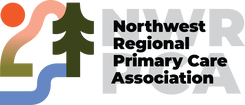Path to Recovery: The Innovative Substance Use Disorder Treatment Model from Southcentral Foundation4/18/2024
This innovative method is known as the Path to Healthy Living model. The model builds on individuals' strengths, is culturally sensitive, and is designed to meet the unique needs of each individual. It considers the whole person: health needs, values, cultural background, family, and community. The approach is supported by research, incorporating elements from the Indigenous Medicine Wheel model, along with techniques from Motivational Interviewing, Solution-Focused Ttherapy, Cognitive Behavioral Therapy, and Acceptance and Commitment Therapy, among others. At the heart of the Path to Healthy Living model is the belief that substance abuse is often a symptom of deeper issues. It acknowledges substance abuse can be a primary way to cope with life’s challenges. Providers under this model recognize the importance of addressing the root causes of substance abuse before expecting an individual to give up their coping mechanism. The aim is to help individuals build a life they are content with, without the need for harmful coping methods. Success is not defined by abstinence or moderation but by personal wellness. The focus of the model is not just on managing triggers and problematic behaviors, but on encouraging individuals to pursue goals aligned with their values. It emphasizes the development of behaviors and activities that support these goals and teaches strategies to handle setbacks effectively. Additionally, the Path to Healthy Living model provides various forms of support to its participants, including s. This includes help with medical appointments, acquiring an ID card from the Department of Motor Vehicles, securing medical alert devices, and offering skill-building groups and resume-writing sessions. An innovative aspect of the treatment is the Contingency Management Program, which rewards participants for their engagement and attendance with the chance to win prizes, rather than focusing solely on abstinence. This incentive-based approach, proven by NIDA/NIH research to be more effective than traditional methods, encourages participation and commitment to the program. The overarching aim of the Path to Healthy Living model is to offer new perspectives on substance abuse, motivate positive change, and foster conditions for meaningful improvement. It seeks to enhance self-awareness, understanding of personal experiences, and clarity on individual values, which in turn helps participants set and achieve personal goals. SCF's approach has fostered stronger connections with those affected by substance abuse, lowered engagement barriers, and heightened community awareness of the support available. The response from those served by SCF and its staff has been positive. For more details on the Path to Healthy Living model or SCF’s Nuka System of Care, the SCF Learning Institute is available for contact. NWRPCA welcomes and regularly publishes white papers and articles submitted by members, partners and associates with subject matter expertise. The appearance of any guest publication in our Health Center News database represents the views of the author and does not constitute endorsement by NWRPCA of the stated opinions or perspectives, nor does it suggest endorsement of the contributor's products or services.
Comments are closed.
|
Archives
June 2024
Categories |
|
|
© Northwest Regional Primary Care Association. All Rights Reserved.
This project is supported by the Health Resources and Services Administration (HRSA) of the U.S. Department of Health and Human Services (HHS) as part of an award totaling $1,742,242.00 with 25% financed with nongovernmental sources. The contents are those of the author(s) and do not necessarily represent the official views of, nor an endorsement, by HRSA, HHS or the U.S. Government.


 RSS Feed
RSS Feed
